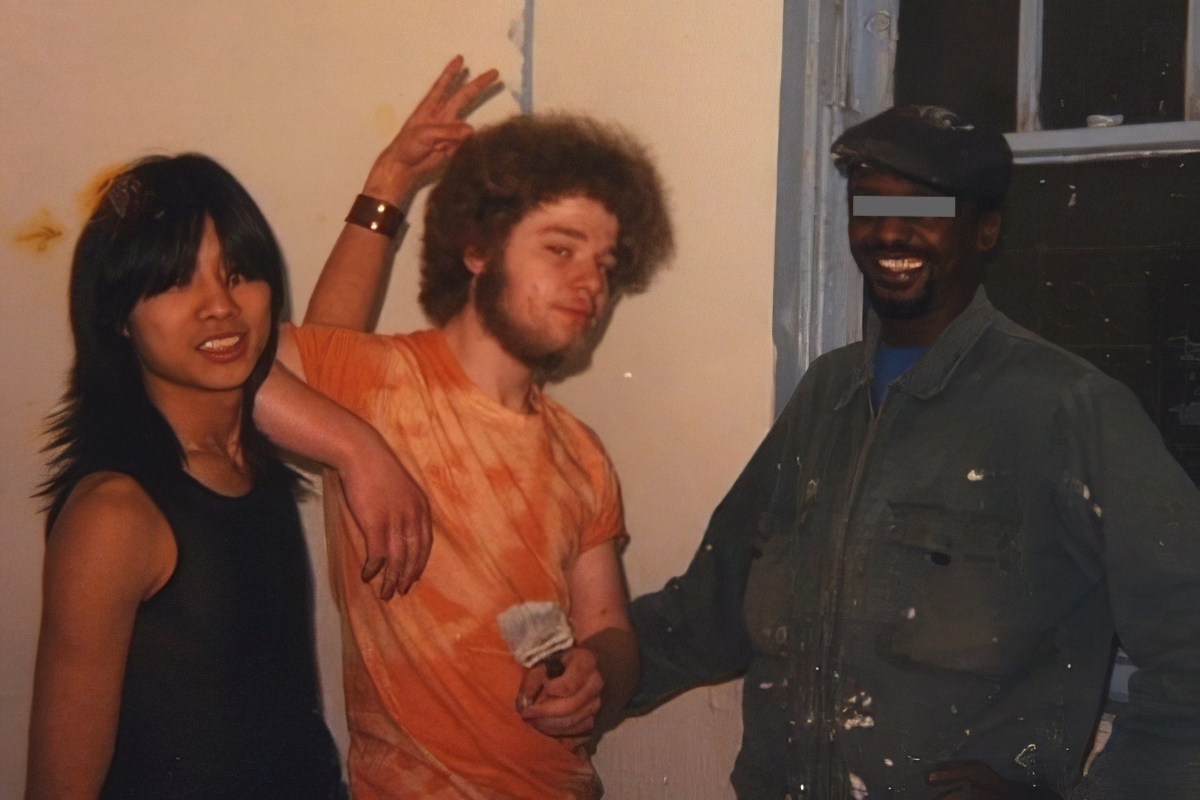Memoir
The Man at the Arcade
Sometimes, it seemed like the world was against me. But when I did finally get the chance to read all those carefully kept files, my overwhelming impression was that they—the social workers, guardian ad litems, judges, teachers and volunteers—were trying their best.

It was March, 1987, and I was 15 years old. I was in the arcade on Wilson, in Uptown, Chicago, asking for quarters. I’d only recently been released from the mental hospital. I didn’t know where my parents lived.
That morning, I’d made my way to the 51st Street Elevated, where I climbed the back of the station onto the platform and caught a train to Loyola. There I met up with some friends. I had new friends at the group home, but I didn’t like them as much as my friends on the North Side.
That doesn’t explain how I arrived at the arcade on Wilson, though. Why Wilson, and not Dennis’s place on Clark Street near the 24th District? Maybe I had a meeting with my caseworker at the Department of Children and Family Services office, or something like that. We’re talking 32 years ago. Maybe it wasn’t March. Maybe it was April.
I asked a man for a quarter and he said no. The guy kind of sneered at me. He had a meanness to him. So I asked someone else. Then the man approached me and gave me a couple of quarters and watched while I played Frenzy. I was terrific at that game, outrunning the stick-figure robot killers and racking up extra lives.
It seemed odd that the man decided to give me the quarters. What had changed? When I finished the game, he asked if I wanted to get high and I said sure, and we drove down to the lake.
He had an unremarkable face. He asked about my school and where I lived, and I explained it to him as best I knew it. I’d left home and lived on the streets. Then I was arrested. By that time, my father had moved, and I didn’t know where, so the state took custody of me. After a suicide attempt, I spent three months in a locked facility. And now I was out, and living with a bunch of other wards, all of us ineligible for foster care because there was something wrong with us. We got in trouble. We stole. We were violent. We didn’t do well with authority and we weren’t grateful to the people who did their best to help.
I’m speaking in generalities of course. It’s a spectrum.
I don’t remember the man’s name but let’s call him Bobby, even though he looked like a Wilbur. He was probably 40 or 50 years old. Bobby talked about his time in the military. He said, “I’m not gay,” then offered me $20 to masturbate in front of him.
I must have looked confused, because he tried to explain the request. He said he used to masturbate with his friend when he was stationed overseas. It made him comfortable. It was either important to him, or he thought it was important to me, that he was not a homosexual. Was he telling the truth? I’ll never know.
We were sitting in the car, parked out near the edge of the pier. The tide was in, and the waves crashed against the rocks. No one in their right mind would jump in the lake when it was like that, yet people died every year. It was dusk and the sun was taking its time tucking itself in for the night.

I thought about his offer. Twenty dollars was a lot of money—though my friends had started robbing houses, and they were making a lot more than that. In a fistful of years I’d be stripping in the gay clubs along Belmont and Halsted. So really, what was the big deal? But I shrugged and said no, I didn’t think so, and he drove me home.
I was home on time and didn’t say anything to the staff in the office by the entrance, sitting near the notebooks they filled in at the end of each shift. That night, there was something of a party upstairs. Maybe it was another another night, but why split hairs? I was only in that place for six horrific months before they kicked me out, and I ended up in a different group home on the North Side, near where I grew up. No more climbing onto trains.
In our little party in Dante’s room, we drank Southern Comfort, strong whiskey cut with syrup, and my roommate CatEyes gave me my first tattoo, a large blue dagger on my left shoulder. The other kids shot dice, gambling everything they had—t-shirts, shoe laces, bubble gum—the bric-a-brac of our transient lives.
I was terrified of CatEyes, but that night we were friends. And he really did have the most beautiful green eyes. His body was like a sculpture—short and muscular, with a little trail of tight curly hairs below his navel. He was 18, already an adult. He didn’t even have to pretend to go to school. He had a job and was working on a general-education diploma, which I sometimes helped him with.
Craig was tripping on acid. The staff downstairs wouldn’t come upstairs alone, and there was only one staff member on duty overnight. It was anarchy in the best and worst ways. It was a party that could turn into a gang fight. I was always a minority. There just weren’t many white kids in Chicago who weren’t eligible for foster care.
At one point, the carpet caught fire and jokes started. The fire went out. Craig let everybody know his girlfriend wasn’t caramel, she was chocolate. In the morning, I tried to wash off the tattoo, but it wasn’t going anywhere until I covered it with a larger tattoo a week before my 18th birthday.
I don’t know what made me think of Bobby, the man in the arcade. I was exposed to lots of sexual predators in those years. Nine months before meeting him, I went to a hotel room with a couple of homeless guys to meet a man in a dress and a wig. He wasn’t interested in me, though; they’d been wrong about that. So I did some of the coke and laid back on the couch while he felated one homeless guy, and then the other. Then he ran away across the motel parking lot.
My childhood was filled with strange rooms and stranger’s cars.
What I’m wondering now, in 2019—during a time when we seem to have divided our understanding of the world into good and evil, punishment and collaboration—is whether Bobby thought he was a good person. What did Bobby really want? If I had masturbated for him, would it have made him satisfied. And for how long? Did he have a plan for making himself happy that went beyond that moment? I’d like to tell him, if he’s still alive (which would make him over 80 years old), that he didn’t traumatize me. The whole thing barely registered.
The thing is, the world in 1987 didn’t make any sense to me. I was a kid stuck in a state system. People came and went. You formed alliances to stay safe. Adults tried to fill the spaces, but all they offered were moments before they disappeared. I didn’t trust any of the social workers, or teachers. People were unfair. Every time I got put in an institution, no one seemed to know when or where I was going to next. Sometimes, it seemed like the world was against me. But when I did finally get the chance to read all those carefully kept files, my overwhelming impression was that they—the social workers, guardian ad litems, judges, teachers and volunteers—were trying their best.
In 1987, I was 15 hanging out in an arcade. There was a grown man who’d come in alone. There were parents with children and kids my age in groups. Everybody was looking for something in all the frantic lights and noise of that panicked place.
Though nothing happened at the beach, a crime was committed—solicitation of a minor. Does that make Bobby a monster? Every day it seems like someone names a monster and invites us to participate in their revenge against the person who took something from them that they can never get back. But I’ve met very few monsters in life. And, as far as I know, Bobby wasn’t one of them—even though I could turn him into a monster very easily. I don’t think he was trying to harm me, and I have no reason to believe that he took pleasure in the suffering of others.
It’s taken me 32 years to unlearn the lessons beginning in the weeks, months and years after I got out of Bobby’s car. Everything I felt about the world that night was essentially correct. An outsider is always an outsider. Don’t go in the water when the waves are taller than the trees. The glass ceiling is never far away; it covers you wherever you go.






